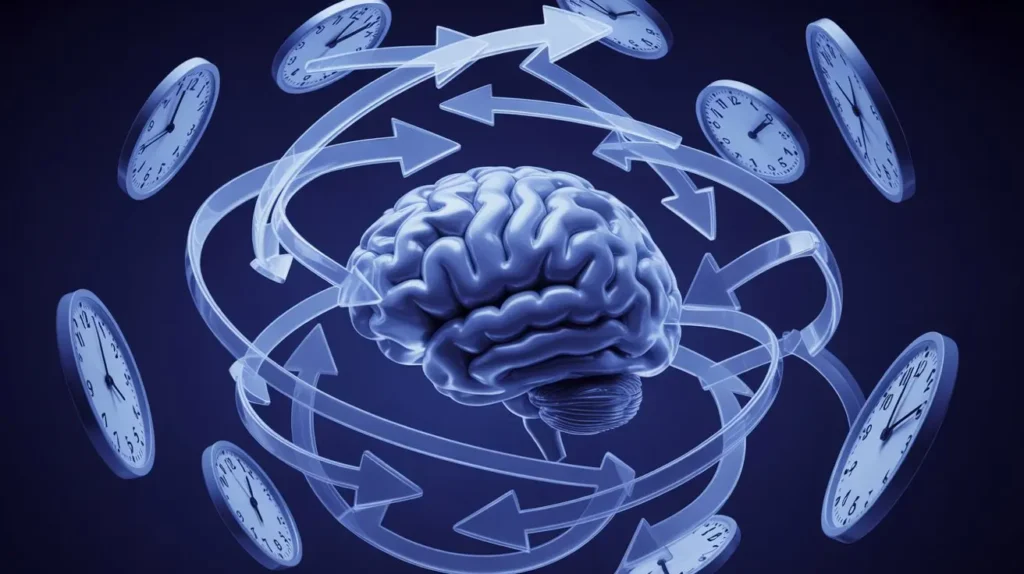
Introduction
We often fall into the trap of procrastination without even realizing when to stop. Let’s skip the “why” part—we don’t want to bore you with causes. But if you’ve ever been stuck in continuous procrastination for hours and suddenly felt your head hurting like hell, that’s a real sign: your mind is overloaded and simply can’t take it anymore. Procrastination does feel good until it doesn’t.
Is It Just You, or Is It Your Mind Saying “Stop”?
If you’ve felt this, you’re not alone. This mental load can feel like you’re stuck. But here’s something interesting: you won’t feel this pain if you’re new to procrastination. Let’s call you a “fresher.” When you’re young, active, and your body’s in good shape, procrastination feels like a guilty pleasure. No side effects—for now. Most importantly, you should know when you can handle it yourself or when you require some professional help.
- So, how do you know if you’re a fresher or not?
Quick Self-Check
Ask yourself:
- Does procrastination give you only pleasure? You’re a fresher.
- Do you feel stuck after a flow of thoughts or pleasure? You’re not.
Over time, this flow traps you. You lose attention to small details around you. And that, my friend, is your body and mind giving you signs: one of them is the headache we’re talking about.
Other Side Effects You Shouldn’t Ignore
- Less concentration
- Random anxiety
- Visible symptoms that may seem harmless at first
- Minute symptoms that are barely noticeable
But with time, these build up into emotional distress. It eats away at your self-esteem. You might find yourself in a crowd thinking, “I can’t do this,” or “Why not me?”
You may feel you deserve more, but procrastination didn’t help you put your efforts anywhere except in your own mind. So you miss those opportunities you waited so long for.
Law of Attraction vs. Procrastination
And please, don’t mix up your procrastination with the Law of Attraction.
Imagining you’ll get a car repeatedly, without motivation or action, is simply procrastination. The Law of Attraction has one simple rule: Think, feel, and act accordingly—that’s it. We’ll talk about that some other day. But don’t mistake procrastination for manifestation.
Practical Tips to Overcome Procrastination (For the “Stuck” Ones)
These are not for freshers, but for those who feel mentally stuck in the loop.
1. Substitute Your Procrastination
Pick something else—it can be productive or even unproductive at times.
Example:
- Watch a movie if you can’t break the loop.
- If you have some strength, do any hobby or skill-building activity.
- If you’re working, continue with your pending tasks only.
2. How to Get the Strength to Break That Loop?
Just like waking up in the morning—it’s tough, but you do it when necessary.
Here’s what to do:
- Fill your mind with your pending to-do list.
- Break the pleasure loop for just 2 minutes.
- Distract your mind with something different.
Once you’re out of that loop, you’re free to choose your next move.
3. Still Stuck? Try This Academic Trick:
- Have some water or a light snack.
- Talk to anyone nearby.
These small acts help your brain reset and recover.
4. Start Exercising
Exercise pulls your mind out of the procrastination zone completely. Your body gets too tired to think of anything else, and you already know the benefits are endless.
5. Write During Procrastination
This is a trick to fool yourself. Write anything important. Even during your pleasure time, you’ll realize how foolish it is to procrastinate. Writing makes you conscious of your choices and pushes you into logic.
Evidence That Supports This
- According to a study published in the journal Psychology, Health & Medicine, procrastinators report higher levels of stress, fatigue, and headaches.
- Chronic procrastination leads to reduced performance and lower well-being (Sirois, 2014).
- The American Migraine Foundation notes that emotional stress is a major migraine trigger, especially when it becomes a cycle.
Just relax, but be cautious
So the next time you feel that pounding in your head after hours of scrolling or daydreaming, don’t ignore it. It’s not just guilt or laziness—it’s your mind saying, “Please stop.”
If you’re facing symptoms like headaches, anxiety, or emotional distress, don’t brush them off. Therapy isn’t just for crisis—it’s for clarity, focus, and long-term well-being.
👉 If you’re struggling, reach out to a therapist through our platform today. You deserve support that works.
